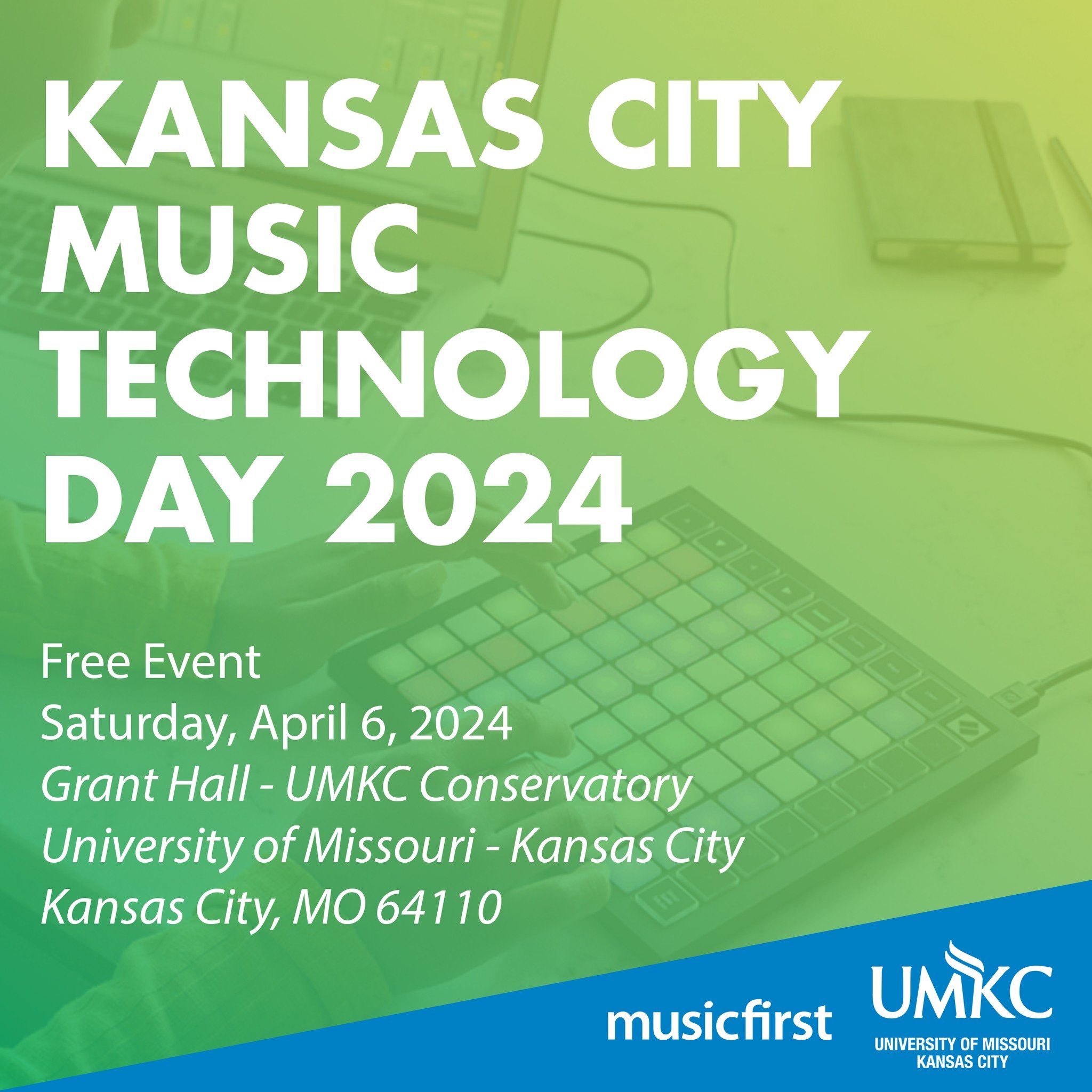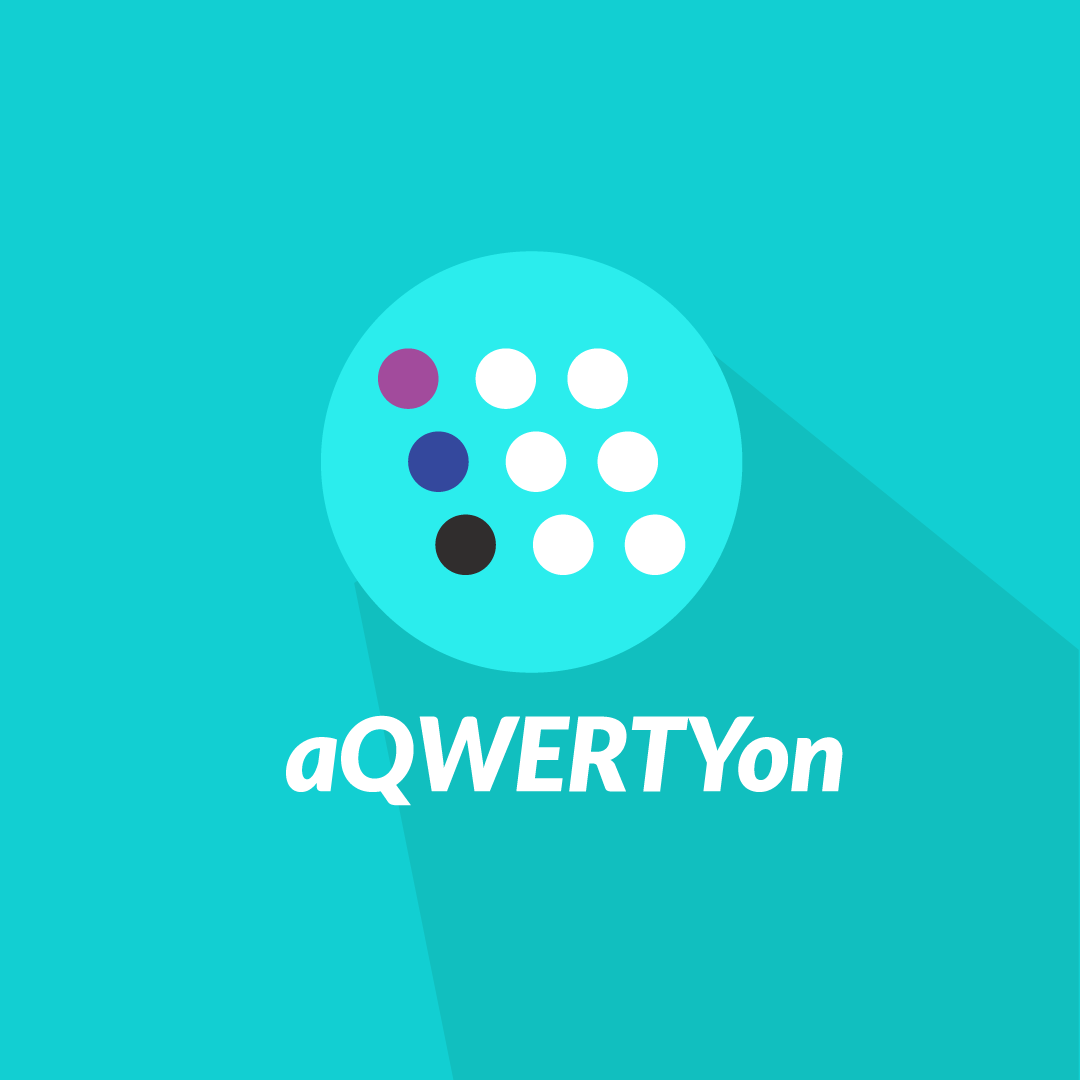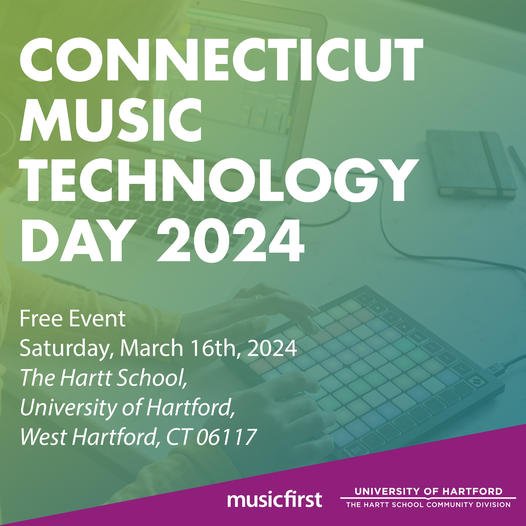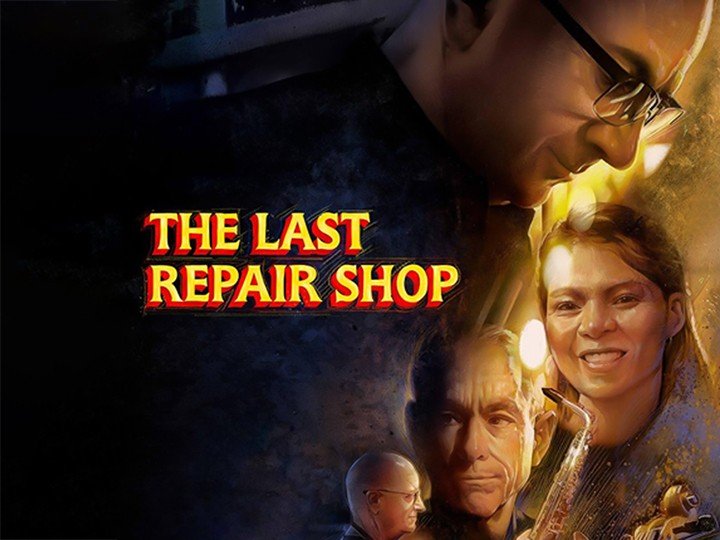
Tool: Pink Trombone
Last night in my Music Tech class at Montclair State University, I was showing my students some fun online music tools. One of my amazing students, Elaria, mentioned a website that she used many times called Pink Trombone. I always get excited when a student tells me about a website that I’m not familiar with, and wow am I glad that Elaria told me about this one. Pink Trombone is an interactive website created by Neil Thapen that helps you visualize and HEAR how the human voice works. This is a WONDERFUL tool for any vocal coach/choir director/choral educator. You can control all sorts of parameters to see exactly what is happening inside your mouth when you make various sounds.

Kansas City Music Tech Day Recap
This morning I am flying home after presenting sessions on behalf of MusicFirst at the first ever Kansas City Music Tech Day, held on the beautiful campus of UMKC. The event was graciously hosted by the UMKC Music Department by Dr. Jennifer Sengin and Dr. Chuck Robinson. We had a small but enthusiastic group of music educators from around the Kansas City metro area and a full slate of sessions, including session delivered by Mandy Coday from the Blue Valley School District and Ryan Main, an award winning composer and educator. I had the honor of delivering the Keynote Address and I was joined by my MusicFirst colleagues, Jaye Mateyko and Mike Olander. It was a wonderful day and I thoroughly enjoyed speaking with the dedicated music educators who attended.

AI Tool: SynthGPT
There are SO many new AI music products hitting my feed every day and it is sometimes hard to keep up. The more I dive into these tools, the more my feeds entice me. One recent product that was popping up multiple times per day is called SynthGPT - from the folks at FADR. FADR is a company that has integrated AI into a bunch of cool tools, including the ability to Remix songs, separate stems from existing songs, and a slick DJ app that allows you to take your creations and perform them live. I will take a look at those options at a later time because I was focused solely on SynthGPT which touts that it can create synth sounds based on text prompts. I was SO intrigued by the concept that I actually shelled out $10 for a one month subscription so that I could access SynthGPT. I’m glad I did.

Tool: aQWERTYon
I just realized that I haven’t highlighted one of the coolest FREE tools available to music educators yet - especially those who do any sort of music composition, improvisation and music theory with their students. Meet aQWERTYon - created by the folks at NYU's Music Experience Design Lab, led by Dr. Alex Ruthmann. Think of it as turning your QWERTY keys into an accordion that doesn't require you to squeeze anything or wear funny hats—unless you want to, of course. There are two main parts to aQWERTYon: the aQWERTYon MIDI keyboard that allows you to learn, play and explore music using your QWERTY keyboard to play a variety of instruments by typing, and aQWERTYon for Theory - that includes a pitch wheel visualization to help students understand how music theory works. So how does it work and how can you use it with your students?

Introducing MarchFirst
Although we wanted to announce this game changing new product last month on March 4th (for obvious reasons), MusicFirst is THRILLED to finally announce today our latest offering - MarchFirst - a product that will revolutionize the marching arts. Through the power of AI, we have created a full suite of products and fabrics that will take your next show to the next level. MarchFirst includes everything you need to create, design, and win any competition. By harnessing the power of the latest AI innovations, MusicFirst has created drill design software, musical auto-arrangement software, and chip-enabled fabric with Bluetooth© technology that allows you to sync everything together, ensuring a perfect show every time. Here’s how it works:

Tip: What To Do When You Don’t Know the Answer
I have been training music teachers on how to use technology for the last 35 years. In that time, I have been asked thousands of questions about specific functions and features of software and hardware. In the 15 years that I taught in the New Jersey Public Schools I was asked tens of thousands of questions by my students on the same subject. Did I know the answers to ALL of those questions? Absolutely not. In fact, my students stump me almost every class, and I am supposed to be a music technology expert! In my opinion, this is the reason why many music teachers fear using technology to teach. What happens when the students ask you a question about a specific piece of software and you don’t know the answer? We are supposed to be subject area experts and not knowing an answer might make us look ill-prepared and less than an expert. Well for 99.9% of music teachers, we are NOT subject area experts on technology - we are experts in music and music education. This post is intended to provide you with some guidance on what to do when you don’t know the answer and hopefully illustrate that those moments are actually wonderful opportunities for both you and your students.

Elvis Lives! New AI Law named after the King of Rock and Roll
Last Thursday, the Governor of Tennessee, Bill Law, signed the Elvis Act - which stands for Ensuring Likeness, Voice and Image Security Act - the first law of it’s kind to protect musicians from AI by adding penalties for copying a performer’s “voice” without permission. This law is directed at AI tools like Voicify.ai - which interestingly just changed its name to Jammable. This site allows users to voice their own compositions with “sound alike” versions of popular musical artists. The new law was met with cheers from the numerous musicians that call Nashville home, including country singer Luke Bryan who said “I’ve just gotten to where stuff comes in of my voice, on my phone, and I can’t tell it’s not me, so hopefully this will curb it, slow it down.”

Tool: Chords in Soundtrap
A week or two ago, my good friend Bob Habersat, owner of Shed The Music, posted a video that demonstrated a very powerful new tool in Soundtrap called simply “Chords” and I was blown away by the simple game changing feature. In short, Soundtrap has added a Chord tool when you add a new MIDI track that allows the user to preview and enter chords directly into the track in a variety of genres and 20 different patterns. It’s almost like having Band in a Box built into Soundtrap. It is IDEAL for students who want to build their own songs but may not know how to play various chords on a piano. Take a look at the wonderful video that Bob posted right after Soundtrap launched the feature:

CSI Southwest Recap
Yesterday I had the pleasure of presenting a session titled Music Education at the Crossroads: The Impact of AI & Technology on behalf of MusicFirst at the 2024 Conn Selmer Institute Southwest on the campus of Arizona State University in Tempe, Arizona. The music buildings at ASU were designed by Frank Llyod Wright - what a treat! The faculty of these CSI events is always top notch, and I was honored to be invited - especially as the only tech-focused presenter on the program.

A Visit to the Musical Instrument Museum
Yesterday I had the distinct pleasure of visiting the Musical Instrument Museum (MIM) in Phoenix, Arizona for the first time to meet with the education team about an event that we are planning for 2025. What an INCREDIBLE place. If you are a music educator, musician, music lover, or human being, you MUST visit this unique and gorgeous collection whenever you are in the area - and I dare say that it is worth a special trip from wherever you are. I spent about 2 hours walking around the exhibits and I was blown away by the vast collection of musical instruments on display, the way they are displayed, the mindful architecture throughout that reminds you of various musical instruments, and the many hands on spaces for young and old alike to make music. It is incredible.

Resource: George Collier Transcriptions
For the past few years, I have thoroughly enjoyed a series of videos by someone named George Collier on YouTube. The basic premise of what he does are transcriptions of popular online videos of musicians performing a wide variety of music. The first one I ever saw was a transcription of The Sunny Side of the Street performed by the now famous Laufey (see above). I LOVE watching the notation scroll underneath the performance as it truly demonstrates the connection between the dots on the page and the music that you hear. I’ll admit that I had absolutely no idea exactly who George Collier was, but I knew that he was good at what he did. I' thought that George was likely a seasoned musician, possibly retired, who had loads of free time to not only do the transcriptions (many of which are VERY complicated).

Lesson Plan: Music for Spring
With Spring fast approaching, I thought I would highlight one of the thousands of lesson plans for music teachers contained in the MusicFirst Classroom Content Library titled Music for Spring. Lots of great stuff in here to get your students listening, responding, and composing music inspired by the Spring season. I hope that you can use this lesson with your students!

AI Tool: Suno
For the past few months, I have been exploring all sorts of AI-enabled music making tools - everything from stem separation, to virtual instruments, to programs that write music. For the most part, the tools that I have found that actually compose music based on user prompts have been less than exciting when it comes to the actual music that it generates. In short, I’ve thought that most of the music was pretty much garbage - void of inspiration, coherent structure, and soul. All of that ended the minute I opened up an incredible tool called Suno. This is by far the most impressive generative composition algorithm that I’ve seen thus far. I showed it at my recent Keynote Address at CT Music Tech Day at the Hartt School of Music, and the audience was stunned at what it created. You could have heard a pin drop in the room after I asked Suno to compose a reggae song about the Hartt School of Music. Thirty seconds later, a reggae tune, complete with lyrics and a vocal part, popped up and my goodness it was pretty amazing. Here’s that song…

CT Music Tech Day Recap
Yesterday I had the distinct pleasure of presenting a Keynote Address and a session on behalf of MusicFirst for the 2nd Annual Connecticut Music Tech Day, held this year at the beautiful Hartt School of Music in Hartford, CT. I was joined by some of my dearest friends, including Amy M. Burns, Barbara Freedman, Wayne Splettstoeszer and Dr. Lee Whitmore, who all presented sessions as well. There were almost 40 music educators in attendance at this FREE day-long PD event put together by Jason Panucci and the MusicFirst team, and they were treated to 9 different sessions throughout the day. Participants were also treated to donuts, coffee, swag bags, a tour of the amazing Allen music library, giveaways provided by Focusrite, and pizza. It was a fabulous day, and we are looking forward to returning to CT again soon. If you would like us to run a similar event in your state or location, just ask! We LOVE putting on music tech oriented events and interacting with music teachers. Here is a gallery of photos from the day, followed by links where you can find handouts, information, and more. I hope to see you at a similar event soon!

Four Years Later: Lessons Learned
Believe it or not, it was four years ago today that a National Emergency was declared due to the global Coronvirus pandemic, and schools were shut down - many for an early “Spring Break”. Little did we know on March 13, 2020 what we were all in for. This pivotal moment in our history forever changed many things - the way we work (remote work), the way we order food (DoorDash, GrubHub, Uber Eats), the way we shop (online), and the way we teach and learn (Zoom, Google Meet, Teams, Flipgrid, etc.). Aside from the anxiety and fear that I was experiencing, I knew on that day that the tools and resources that we had built at MusicFirst could be a lifeline for music teachers around the world. We decided on that day to give away the MusicFirst Classroom to any teach that requested it, not knowing that an overwhelming tidal wave of requests would be coming soon thereafter. We gave away over 500,000 accounts and tested the capacity of our servers right away. In order to make the giveaway fo our platform more effective, I decided to run a series of webinars from March 16th through the 20th for music educators to show how our solutions could be used to teach music effectively online. We had thousands of teachers sign up. Here is the first webinar of that series:

Watch this Now! The Last Repair Shop
Every once in a while we need a reminder (at least I do) of why we went into music education. It’s a tough gig and we don’t always see the bigger picture when we are focused on the finer details of music making - especially with ensembles and concerts. Between administration, parents, colleagues and the students themselves, it can be easily become overwhelming, and it might even block out our original reason for why we went into the profession in the first place. Every once in a while, a reminder comes along and feeds our musician and educator souls. This past weekend at the Academy Awards ceremony, one of those reminders appeared - a 12-year-old young lady named Porsche Brinker walked up on to the stage to receive an Oscar, along with two gentlemen, Ben Proudfoot (filmmaker) and Kris Bowers (composer) for Best Documentary Short. It was for a movie titled The Last Repair Shop. I will admit that I hadn’t heard of the film before they were announced, but after the incredible speech that was delivered by the film’s composer, Kris Bowers. Here is his inspiring speech:
AI Tool: Cassette
A few weeks ago, I was teaching my music technology class at Montclair State University and the topic of the class session was AI in Music Production. One of my amazing students brought a very cool tool to my attention. It’s called Cassette and it is VERY cool. The free version allows you to create music based on text prompts, as well as a bunch of other options. While the free account doesn’t allow you to export your finished musical creations, it is still a very powerful tool for students who are looking for inspiration for their compositions. The affordably priced upgrade option ($3.99/month) allows you to export your music as well as some other powerful features. Let’s take a closer look.

MusicFirst Partners with DeKalb County Schools
Yesterday, I spent the morning with the amazing music teachers of the DeKalb County School District in suburban Atlanta, Georgia training them alongside Jaye Mateyko, Director of Training & Support for MusicFirst. MusicFirst was recently awarded a districtwide adoption of the MusicFirst Classroom for their Instrumental, Vocal and General Music programs, along with some of our most popular software titles, including: PracticeFirst, Soundtrap, Musition First, Sight Reading Factory, Flat for Education, Focus On Sound, and OGenPlus. This adoption, which was the largest in our history, will bring this set of powerful tools, content and resources to over 17,000 students for the next six years. I am SO proud that we not only won the adoption, but that the teachers are so excited about bringing our solutions into their teaching.

Join Me @ CSI Southwest, Southeast & More!
One of my favorite events and organizations in the music industry is the Conn Selmer Institute which happens every June in Mishawaka, Indiana. Instrumental teachers and music administrators from around the country gather to get some of the finest PD available. I’ve been a part of CSI for many years, and I always look forward to spending time with my good friend Dr. Tim Lautzenheiser, as well as the entire CSI Faculty. This year, CSI is putting on a bunch of satellite events for those unable to travel to Indiana. These events are in Phoenix, Atlanta, Ithaca, and Kansas City. I am very proud to have been included on the program, and look forward to meeting music educators and administrators in these great cities.

Join Me @ CT Music Tech Day 2024!
I was up in New Haven, CT yesterday training all of the music teachers from the school district and it reminded me of two things: 1) that on Saturday, March 16th, MusicFirst is hosting the 2nd Annual Connecticut Music Technology Day at the Hartt School of Music, and 2) I needed to pick up some pizza from the one and only Frank Pepe’s to bring home for dinner! This was SUCH an amazing event last year that we have decided to do it again, and I will be joined by some of my dearest friends - including Wayne Splettstoeser, Dr. Lee Whitmore, Amy Burns and Barbara Freedman. The best part? Registration is FREE and it includes a full of high quality PD and LUNCH! Here is the agenda for the day: